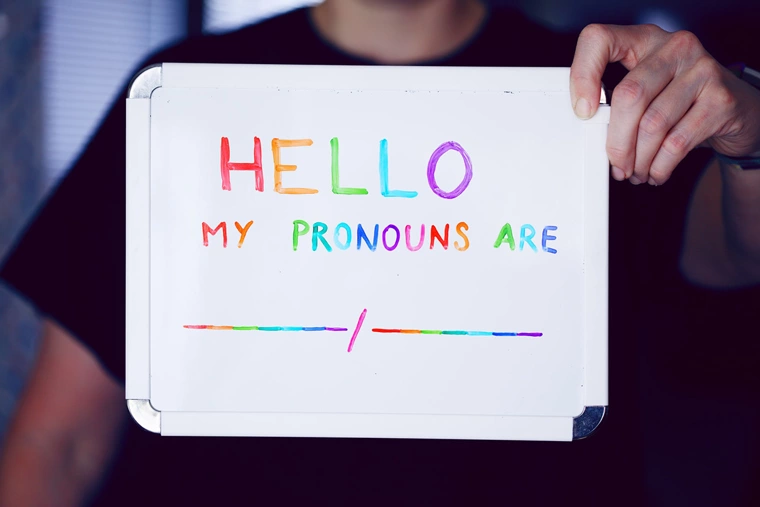A majority of Americans believe allowing children to choose a “preferred pronoun” that does not correspond with their biological sex would only confuse them, according to a new poll.
Researchers with Harvard’s Center for American Political Studies and Harris Poll conducted a survey in May that asked over 1,900 registered voters whether children should be able to choose between using “he,” “she” or “they,” or whether they should be addressed by their sex.
Nearly six out of 10 respondents (59%) said children should be “called by their sex.”
Forty-one percent of respondents believe “Kids should be able to pick their pronouns.” Sixty-one percent of Democrats, 56% of respondents between ages 18 to 34 and 53% of respondents who lived in an urban region said the same.
Republicans (77%) and independents (64%) overwhelmingly believe children should be referred to by their biological sex. The majorities of both male (60%) and female (59%) respondents agree.
The survey also asked whether allowing kids to pick their pronouns is a move that “prevents discrimination against transgender students” or an “excessive measure that does more to confuse kids about their sex.”
A solid majority — 60% — said they believe preferred pronouns are an “excessive measure that does more to confuse kids about their sex.” The other 40% believe using pronouns preferred by children “prevents discrimination.”
Parents (59%) and non-parents (58%) agreed that children should be called by their biological sex.
Most respondents said they think teachers should be able to use whichever pronouns they prefer for their students, with 63% of respondents saying they should have discretion when it comes to pronouns in the classroom.
A majority of Democrats (56%) and respondents aged 18-34 (54%) said teachers should be compelled to use pronouns that kids say they want to be used under penalty of losing their job, according to the survey.
About 27% of respondents think it should be classified as “illegal discrimination” for failing to use someone’s selected pronouns, while 73% said it should not be considered “illegal.”
The poll was conducted online in the United States from May 18 to May 19, 2022, among 1,963 registered voters. Results were weighted for age within gender, region, race/ethnicity, marital status, household size, income, employment, education, political party and political ideology where necessary to align them with their actual proportions in the population.
Far from being hypothetical, the issue of using biological sex pronouns for trans-identified people — which the LGBT community refers to as “deadnaming” — has resulted in legal battles for many Christians, particularly those with careers in academia.
A federal judge granted a temporary order last month in the case of a Kansas teacher suing her school district over policies requiring teachers to use the preferred names and pronouns of trans-identified students and hide those preferences from parents.
U.S. District Judge Holly Teeter partially granted a preliminary injunction on behalf of Fort Riley Middle School teacher Pamela Ricard preventing Geary County Schools Unified School District 475 from disciplining her for not referring to a student’s preferred name and pronouns in her communications with a trans-identified student’s parents “within the regular course of her duties.”
In April, a Christian professor in Ohio who claims he was threatened with punishment by university officials in Ohio for refusing to use the preferred pronouns of a trans-identified student was awarded a $400,000 settlement and secured the right to avoid using pronouns that conflict with his beliefs.
Last fall, a Pennsylvania university threatened disciplinary action against students who “misuse” pronouns, including “misgendering, pronoun misuse, and deadnaming.”
In 2018, a school board in Virginia fired teacher Peter Vlaming because he wouldn’t agree to use the preferred pronoun of a trans-identified student. Following his firing, a large group of students at West Point High School staged a walkout to protest the teacher’s termination. Vlaming filed a lawsuit against the West Point School Board in October 2019.
In 2021, another teacher was placed on leave in Loudoun County, Virginia, after he voiced concern at a school board meeting about a proposed policy that has since been enacted requiring teachers to use the preferred pronouns of their trans-identified students. A judge ordered the teacher’s suspension to be lifted, and the Virginia Supreme Court rejected the school district’s appeal.
By Ian M. Giatti, Christian Post Reporter
Originally published on The Christian Post
(c) The Christian Post, used with permission




